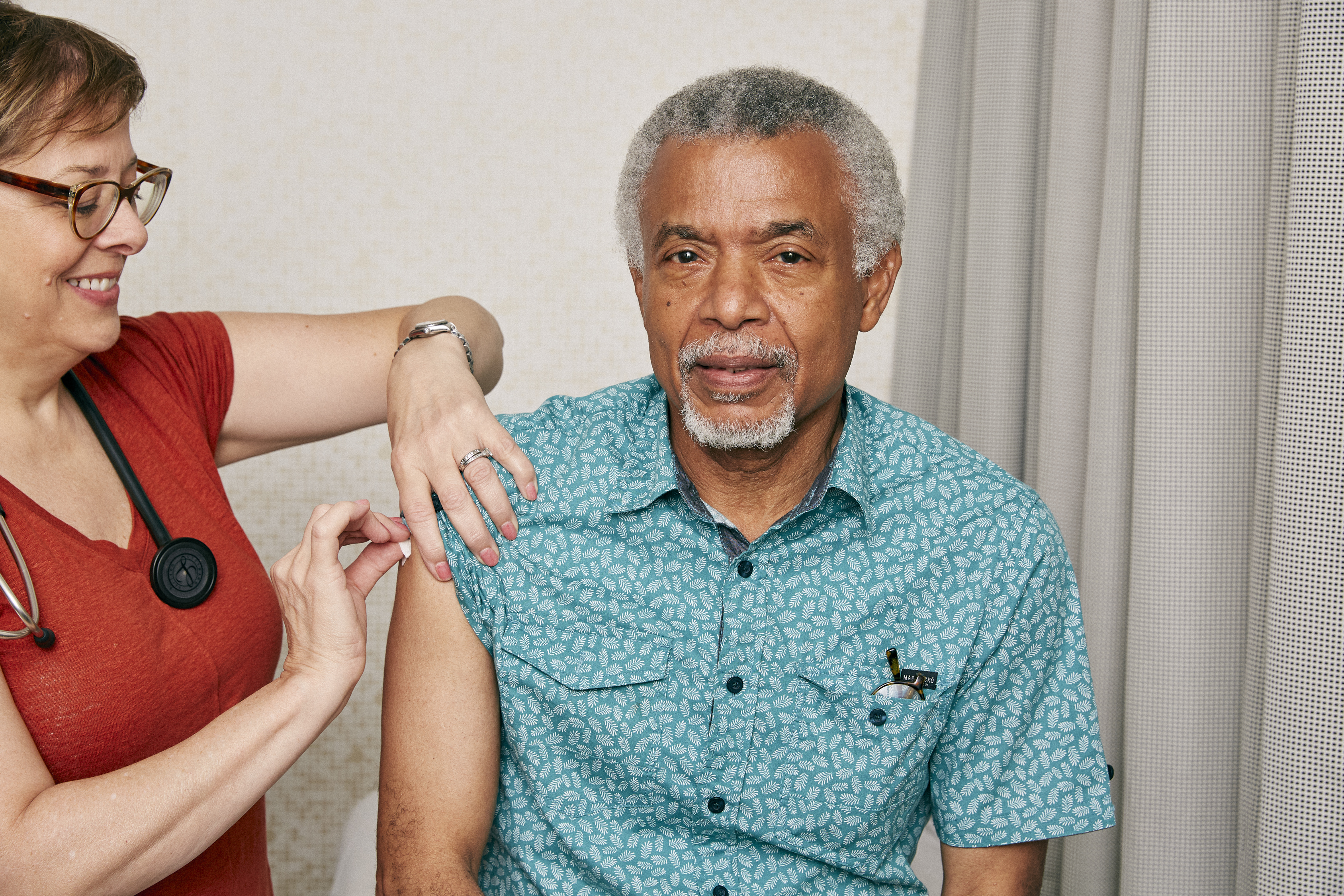News release
From:
COVID-19 Vaccine Delivery by Age May Mitigate Deaths and Severe Health Impacts
Study suggests that prioritizing the elderly and vulnerable ahead of younger people may be most effective in reducing disease impacts
Strategic vaccine delivery is critical to reducing COVID-19 transmission, mortality and long-term health impacts. A study published in PLOS Computational Biology by Sam Moore, Matt Keeling and colleagues at University of Warwick, United Kingdom suggests that prioritizing vaccine delivery to older age groups and the medically vulnerable has the greatest impact in minimizing loss of life.
While older people are more likely to experience serious health outcomes related to COVID-19 infections, younger age groups contribute significantly to disease transmission and spread. In order to test the efficacy of different vaccination strategies on minimizing deaths and hospitalisations, researchers built an age-structured model that simulated the spread of SARS-CoV-2 within different regions in the United Kingdom. The authors then used the model to test multiple different scenarios, including variations in vaccine efficacy using observational data on comorbidities and social-distancing measures in the United Kingdom.
The models showed that vaccine strategies prioritizing older age groups first most effectively mitigated deaths and lost quality of life years, despite the significant role of younger groups in disease spread. Since the study’s completion in 2020, data has become available for the key assumption on vaccine uptake and specific vaccine characteristics, however the general conclusions of the study remain relevant. Additionally, the research has already helped guide UK policy makers in the development of an effective COVID-19 vaccination programs, including the formation of the Joint Committee for Vaccination and Immunisation’s priority groups that have been used for vaccine delivery.
According to the authors, “While the ultimate success of any vaccination scheme will be highly contingent on the characteristics of the vaccine itself and the level of population uptake, as vaccines are developed which mitigate the disease, it is of great importance that they are delivered in an optimal manner - reducing mortality and healthcare demands. In all scenarios we find vaccinating the most elderly and vulnerable first to have the greatest impact.”
############



 International
International



